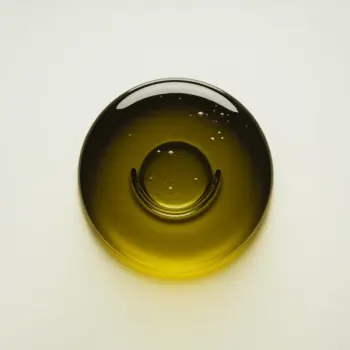Olive Oil and Margarine are two different cooking fats commonly used in recipes for their distinct flavors and textures; Olive Oil is a monounsaturated fat ideal for sautéing and dressings, while Margarine is a processed fat suitable for baking and mimicking butter.

Olive oil is a natural oil extracted from olives, the fruit of the olive tree. It's a staple in Mediterranean cuisine and is praised for its health benefits and rich, fruity flavor.

Margarine is a processed food product made from vegetable oils that have been hardened through hydrogenation. It was originally created as a cheaper alternative to butter and is used in various cooking and baking applications.
Olive oil and margarine differ in source, processing, flavor, and health implications. Olive oil is a monounsaturated fat that is less processed and has a distinct taste profile, while margarine is a trans or saturated fat with a neutral flavor, designed to mimic butter.

Your ultimate Recipe Box, Meal Planner, and Cooking Class all in one
Ideal for moist cakes or bread, adds a nuanced flavor. Use a lighter variety for a subtle taste. Works well in cookies and pastries for a buttery texture. Choose a high-fat margarine for best results.
Best for sautéing vegetables or meats, offering a rich and sometimes peppery note to dishes. Can be used for sautéing, but it may add an artificial flavor and is less stable at high heat.
The go-to oil for salad dressings, pesto, and mayonnaise for its flavor and health benefits. Not commonly used in dressings or sauces due to its consistency and flavor profile.
Olive oil is high in monounsaturated fats and antioxidants, beneficial for heart health. Margarine's trans fats have been linked to health risks, but newer formulations with reduced or no trans fats are available.
| Nutrient | Margarine ( per Tablespoon ) | Olive Oil ( per Tablespoon ) |
|---|---|---|
| Fat | 11.5g | 13.5g |
| Sodium | 147mg | 0.3mg |
| Calcium | 5mg | 0mg |
| Protein | 0.1g | 0g |
| Calories | 102 | 119 |
| Carbohydrates | 0.0g | 0g |
Yes, olive oil is generally considered healthier due to its monounsaturated fat content and natural extraction process.
While olive oil can often be substituted for margarine in cooking and some baking, it may not be suitable for recipes where a solid fat is required for texture.
Extra virgin olive oil has a pronounced flavor which can influence the taste of dishes, while margarine tends to have a more neutral, butter-like flavor.
Margarine can be used for frying, but it has a lower smoke point and may not be as stable as olive oil at high temperatures.
Yes, there are many non-dairy margarine options available, often marketed as vegan or plant-based.